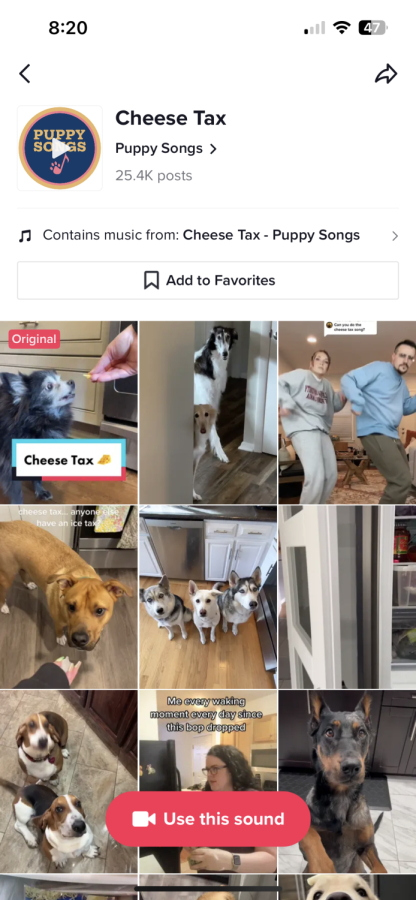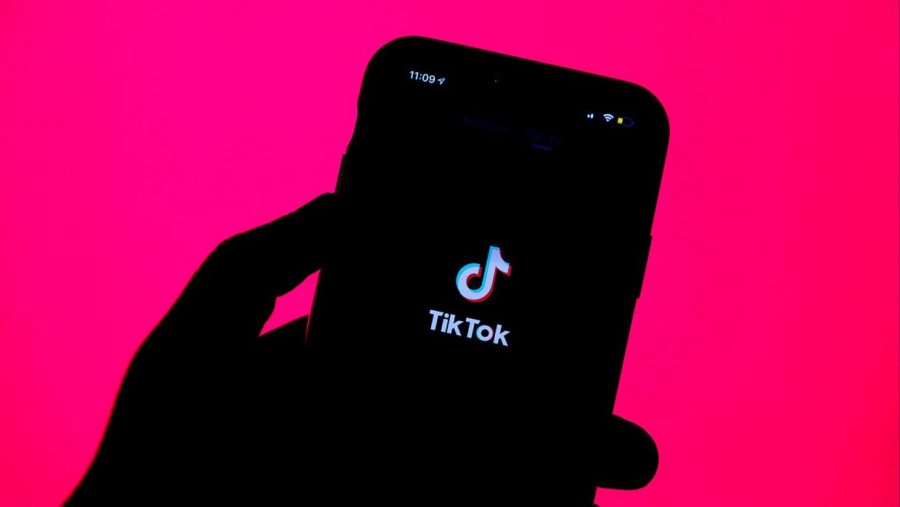TikTok stifles originality
Viral trends and sounds encourage cookie-cutter behavior
Tik Tok’s large user base and viral trends encourage a lack of originality.
March 23, 2023
If you have talked with a person from Generation Z recently, you might have noticed unusual language. Perhaps they broke out into song, and the words or melodies they sprouted would be unrecognizable except to the avid users of the social media platform TikTok.
Nowadays, it is almost impossible to maintain a lifestyle without the influence of social media. TikTok is just one example of an app that has been used to gather information about impressionable audiences and use it to manipulate their actions. Social media has increasingly threatened our privacy via data collection and sale. Considering TikTok is owned by a Chinese company called ByteDance that is required to release data to the Communist Party, everyone who has an account should be concerned.
Meanwhile, this app has taken over younger generations in the past few years, using a fast-paced format to promote constantly changing content. Videos and creators are constantly peaking to virality and quickly reaching a large audience. However, TikTok threatens original thought and has created a social divide between those who have it and those who abstain.

TikTok’s format only accelerates this process because the shortest videos, 10 seconds long, can spread across the app like wildfire, carrying promotions of products, lifestyles and looks. Because of this incessant release of content and large user base — upwards of 1 billion people monthly — if a sound or user goes viral, then it can reach millions. For example, the most used sound in the United States was used in almost 9 million different videos. That makes for a sound that a lot of people know and then repeat in their daily lives, seeing as though many of the sounds are shorted from songs or viral videos.
That is not to say that TikTok doesn’t allow for creativity, more so that it generates a monolithic culture of consumerism and repetition that enables social mobility for certain people. Consider fashion. Before TikTok and other social media platforms, trends had to spread either in real life or more slowly from sources like fashion magazines. Now, a simple hashtag on the app can cause an international change in what people wear, as Vogue describes in a 2020 article — the hashtag “Y2K” had more than 50 million hits. Consider what the number has reached now.
One should question how these sounds and trends are infiltrating our lives and influencing the formation of original thoughts. If a large portion of users know and repeat the same sounds, then they are reducing their intellectual potential by relying on the words and thoughts of others to replace their own. A greater divide arises between those that have the app and those that don’t because those who don’t have an account don’t recognize the trends or phrases that are popular at the time.
But why does the use of this app generate so much controversy? Other apps don’t create such a divide. For example, many people have a positive response when someone abstains from using Instagram. They might say it’s “cool” to be unplugged, wishing they could do the same. Why should TikTok be any different?
The format and algorithms on the app are making it more addictive, thus creating a social divide. A BBC article from 2022 noted a comment from a psychologist stating that TikTok may be more addictive due to its personalization of content for each user. Such personalized videos make people more susceptible to following trends and reduce their ability to formulate original content in their own lives.
TikTok and other social media are threatening the basis of originality, and users should be aware of the consequences they sign up for when they download.












